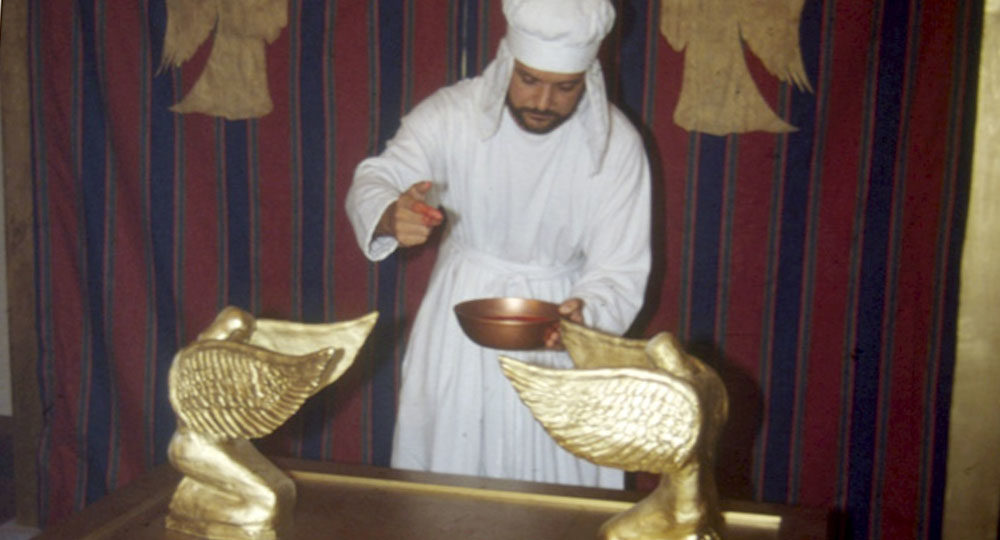Shall Not Come to Mind Anymore
Jeremiah 3:16 and John 3:16
“Then it shall come to pass, when you are multiplied and increased in the land in those days,” says the Lᴏʀᴅ, “that they will say no more, ‘The ark of the covenant of the Lᴏʀᴅ.’ It shall not come to mind, nor shall they remember it, nor shall they visit it, nor shall it be made anymore” (Jer. 3:16).
The Ark of the Covenant represented God’s presence and His footstool (Ex. 25:22; 1 Chr. 28:2; cf. Ps. 99:5; 132:7).
It was where the Day of Atonement (Yom Kippur) ceremony was conducted in ancient days. The high priest sprinkled blood on the Mercy Seat of the Ark, providing a national covering for sins (Lev. 16). According to the ancient rabbis, the Messiah would provide an atonement (cf. Pesikta Rabbati, Piska 36.1; Zohar II. 212a).
Theologically, Jesus fulfilled the service performed on Yom Kippur, but with an outstanding exception: His sacrifice and shed blood provided something far better—eternal redemption: “Not with the blood of goats and calves, but with His own blood He entered the Most Holy Place once for all, having obtained eternal redemption“ (Heb. 9:12).
The prophet Jeremiah spoke of a future time when Israel’s ceremonies at the Ark will no longer be needed or come to mind. The reason is simple when considering the New Testament counterpart to Jeremiah 3:16:
For God so loved the world that He gave His only begotten Son, that whoever believes in Him should not perish but have everlasting life (Jn. 3:16).
John 3:17 is equally as wonderful: “For God did not send His Son into the world to condemn the world, but that the world through Him might be saved.”






